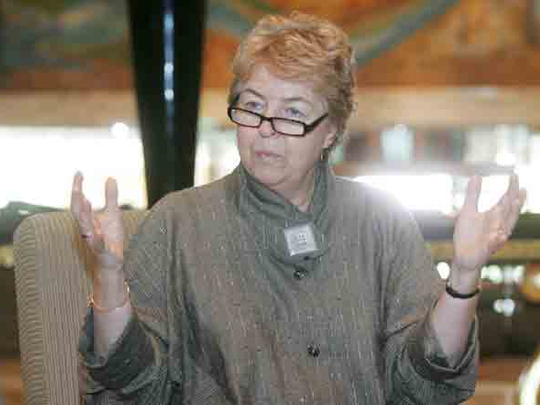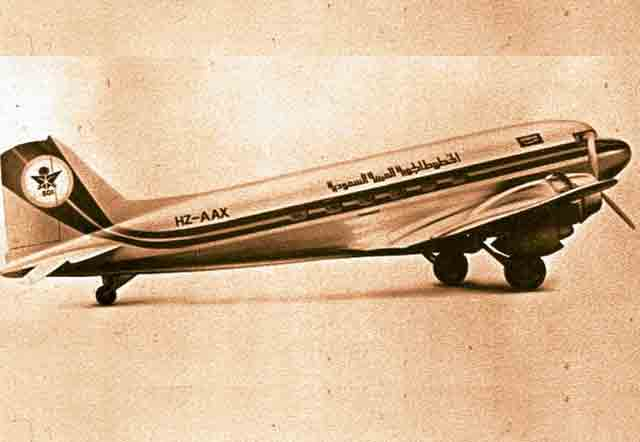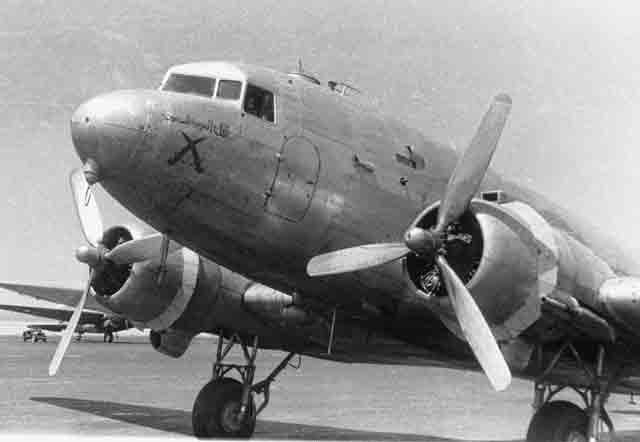
When American President Franklin Delano Roosevelt landed in Saudi Arabia in 1945 to start a ‘new deal' with the Arab world, he probably never thought one of his family members would today be carrying on with his mission from Dubai.
More than 65 years after FDR gave Saudi King Abdul Aziz Bin Saud a DC-3 aircraft as a goodwill gesture to start a new era of friendship with the Arab world, his granddaughter Anna Eleanor Roosevelt has launched an initiative that aims to take that engagement to a new level, while involving and empowering young people of the Arab world. As Vice-President of the Boeing Company for Global Corporate Citizenship, Anna Roosevelt has begun dialogue with a number of non-profit groups and non-government organisations (NGOs) to introduce the region's citizens to Boeing's corporate social responsibility (CSR) initiatives.
Boeing sponsors community educational and environmental initiatives in the Middle East through its Global Corporate Citizenship programme. During the past year, it has funded education programmes and entrepreneurship training for more than 2,000 people across the region, principally through projects organised by top non-governmental organisations.
In her role, Roosevelt provides philosophical and strategic direction to the company's Global Corporate Citizenship programme. She also leads a network of US and international community investors, who employ and leverage Boeing's multiple resources to address needs of communities where the company has a business presence.
However, CSR is a term which the GCC's corporate world has yet to come to understand in real terms. So what is corporate citizenship?
"Everything that we do impacts the world, our lives. We have to think about what those impacts should be like," Roose-velt explained.
"The world is moving faster than anyone can cope with."
Leadership development
For her, education and leadership development are key the the Boeing initiatives. However, these are done through forging partnerships with NGOs, she says.
"We are stakeholders of the community — local community. They are an extension of ourselves," she says.
"It helps us to expand our regional engagement, expand the corporate brand and strengthen the social fabric."
Boeing partners with Injaz in the Palestinian Territories, Jordan and Qatar to provide leadership and entrepreneurship training. In Qatar, Boeing supports the Injaz Leadership Course, which is designed to develop leadership skills among school students.
"We have a responsibility and commitment to the communities - deep commitment. We carry out this by our community engagement, by developing partnership with organisations to support communities," she said. "We are not forced to do it. We do it because it is the right thing to do."
Roosevelt runs her programme with an annual budget of $57 million, of which $24 million is spent on country programmes. For a company whose revenues are expected to cross $64 billion this year, is $57 million enough for corporate citizenship programme, especially when it claims to be caring for the community so much?
"We are constantly fighting to raise our budget," Roosevelt responds quietly. "However, our level of contribution is much higher as these programmes are carried out through partnership. In most cases, our partners contribute more than us."
While in Dubai she met with prominent UAE officials and businesspeople to expand her programme, including Princess Haya Bint Hussain, wife of His Highness Shaikh Mohammad Bin Rashid Al Maktoum, Vice-President and Prime Minister of the UAE and Ruler of Dubai; Juma Al Majid and Shaikh Khalid Bin Zayed Al Nahyan.
However, there are those who ask why a company like Boeing took such a long time to identify the Middle East for engagement with people and wonder how much of it is driven by Boeing's growing sales in the region.
"It's not just sales. We are a part of the community," Roosevelt says. "Our experience with the Arab world is very young. I am proud of a company to want to be open about the Arab world."
She says her company will use technology to help communities. "We will use technology to fashion a better life, to find ways to meaningful life at every level," she says.
FDR understood the importance of the Middle East, she says.
"He knew it would be very important and King Abdul Aziz would play a great role in the region. That's why he flew to Saudi Arabia to start the new chapter in our relationship," she says.
Sustainable energy research
Boeing has also partnered with the Masdar Institute of Science and Technology, Etihad Airways and Honeywell UOP to establish the Sustainable Bioenergy Research Project (SBRP). The end goal of SBRP is commercially viable sustainable aviation fuels, bioenergy for electricity production, sustainable aquaculture products, and high-value biomaterials, which can be utilised for aviation and other sectors.
Boeing has also entered into a Strategic Framework Agreement with Mubadala, which intends to develop mutually beneficial initiatives in areas where there is strategic alignment between the two companies, including composite manufacturing, engineering, research and development, commercial maintenance, repair and overhaul, military maintenance and sustainment, pilot training and people development.
Profile
- Born in Pasadena, California, Anna Eleanor Roosevelt holds a bachelor of arts degree in art and art history from Stanford University and a master of science degree in library science from the University of North Carolina at Chapel Hill.
- She began her professional career when she moved to Kentucky following graduate school to join the faculty of Western Kentucky University.
- There she taught museum studies and worked on the Kentucky Museum staff for nearly eight years.
- In 1983 she moved to Chicago as a freelance collection consultant and was later named the first director of the Center for Scandinavian Studies at North Park College in Chicago.
- In 1987 Roosevelt pursued her lifelong interest in politics, working for the Democratic National Committee.
- In 1989 she managed late US Sen. Paul Simon's Chicago office and then his successful campaign for re-election in 1990. The following year Roosevelt served as a consultant on the successful "Daley for Mayor" campaign.
- In 1991 she became the first executive director of the Museums in the Park, an organisation representing the political interests of nine museums located on Chicago Park District land.
- From 1996 through 1998 she was director of the Mayor's Office of Programme Development for the City of Chicago.
- From January 1998 to 2001 Roosevelt served as executive director of the Brain Research Foundation, an affiliate of the University of Chicago.
- When the Boeing Company relocated to Chicago, Roosevelt became director of Community and Education Relations for Boeing's Corporate Offices, and now serves as vice president of Global Corporate Citizenship.
- Roosevelt is a trustee of Roosevelt University where she also chairs their advisory committee for the Center for New Deal Studies. She is also a trustee of Spelman College; is a member of the advisory boards of the Hubert H. Humphrey Institute of Public Affairs, the Abraham Lincoln Presidential Library and Museum Foundation, and the Joan B. Kroc Institute for International Peace Studies; is a member of the Chicago Sister Cities Casablanca Committee and the Foundation for the National Archives board, and co-chairs the Franklin and Eleanor Roosevelt Institute in New York.














